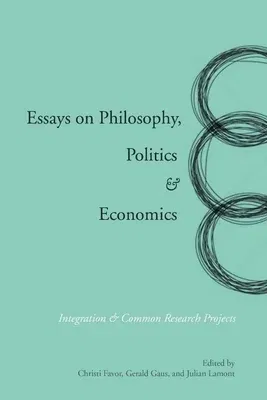Essays on Philosophy, Politics & Economics: Integration & Common Research ProjectsPaperback, 17 May 2010

Qty
1
Turbo
Ships in 2 - 3 days
In Stock
Free Delivery
Cash on Delivery
15 Days
Free Returns
Secure Checkout

Print Length
392 pages
Language
English
Publisher
Stanford Economics and Finance
Date Published
17 May 2010
ISBN-10
0804762554
ISBN-13
9780804762557
Description
Product Details
Book Format:
Paperback
Country of Origin:
US
Date Published:
17 May 2010
Dimensions:
22.61 x
14.99 x
2.54 cm
ISBN-10:
0804762554
ISBN-13:
9780804762557
Language:
English
Location:
Stanford, CA
Pages:
392
Publisher:
Weight:
521.63 gm